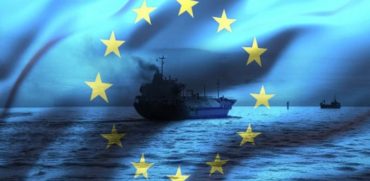
State aid: Commission approves maritime transport support schemes in Cyprus, Denmark, Estonia, Poland and Sweden
The European Commission has approved under EU State aid rules five schemes to support maritime transport in Cyprus, Denmark, Estonia, Poland and Sweden. The schemes encourage ship registration in Europe and contribute to the global competitiveness of the sector without unduly distorting competition.
The Commission adopted five separate decisions, concerning
- the introduction of a tonnage tax and seafarer scheme in Estonia,
- the prolongation of a tonnage tax and seafarer scheme in Cyprus,
- the introduction of a new seafarer scheme in Poland,
- the prolongation and extension of a seafarer scheme in Denmark, and
- the prolongation of a seafarer scheme in Sweden.
The Commission assessed the five schemes under EU State aid rules, in particular its Guidelines on State aid to maritime transport (the “Maritime Guidelines”) and established that all schemes are in line with its interpretation of the Maritime Guidelines.
As regards the tonnage tax schemes in Estonia and Cyprus, the Commission found that the schemes comply with the rules limiting tonnage taxation to eligible activities and vessels. Furthermore, as regards taxation of dividends of shareholders, the Commission found that both the Estonian and the Cypriot tonnage tax schemes ensure that shareholders in shipping companies are treated in the same way as shareholders in any other sector.
As regards the seafarer schemes in Estonia, Cyprus, Poland, Denmark and Sweden, the Commission found that all five Member States have agreed to apply the benefits of their respective scheme to all vessels flying the flag of any EU or EEA Member State.
The Commission concluded that the schemes are in line with EU State aid rules, as they will contribute to the competitiveness of the EU maritime transport sector and encourage ship registration in Europe, while at the same time preserving Europe’s high social, environmental and safety standards and ensuring a level playing field.
Background
To address the risk of flagging out and relocation of shipping companies to low-tax countries outside of the EU, the Commission’s 2004 Guidelines on State aid to maritime transport allow Member States to adopt measures that improve the fiscal climate for shipping companies. Only companies that are active in maritime transport (defined as the transport of goods and persons by sea) are eligible for measures under the Maritime Guidelines.
The most prominent of such measures is tonnage tax, whereby shipping companies can apply to be taxed based on a notional profit or the tonnage they operate, instead of being taxed under the normal corporate tax system. This can reduce the overall level of taxes paid and increase their predictability for the companies. Under seafarer schemes, labour costs (i.e. income tax and social security contributions) for seafarers employed on board vessels flying the flag of EU or European Economic Area (EEA) Member State may be partly or totally reduced.
In its application of the Maritime Guidelines, the Commission is determined to ensure consistency and equal treatment of shipping companies throughout the EU whilst at the same time making sure that any beneficial tonnage tax and seafarer schemes do not contravene internal market rules. The Commission ensures in particular that there is no spill-over of the favourable tax treatment of shipping companies into other sectors unrelated to maritime transport, that there is no discrimination against other EU or EEA State registries and that the aid does not exceed the ceiling set out in the Maritime Guidelines.
The non-confidential version of the decisions will be published under the case numbers SA.51809 (Cyprus), SA.52069 (Denmark), SA.53469 (Estonia), SA.46380 (Poland), SA.46740 (Sweden) in the State aid register on the Commission’s competition website once any confidentiality issues have been resolved. The State Aid Weekly e-News lists new publications of state aid decisions on the internet and in the EU Official Journal.
